Sutra in Forty-Two Sections — excerpts of timeless wisdom and practice advice from the World Honoured One
This sutra contains many favorite gems:
“You should be mindful of the four elements within the body. Though each has a name, none of them is the self. Since they are not the self, they are like an illusion.”
“When you see someone who is practicing giving, aid him joyfully, and you will obtain vast and great blessings. ”
“Patience under insult is the greatest strength, because people who are patient do not harbor hatred, and they gradually grow more peaceful and strong…”
“Dharma is the mindfulness that is both mindfulness and non-mindfulness. It is the practice that is both practice and non-practice. It is words that are words and non- words, and cultivation that is cultivation and non-cultivation…”
“There are people who follow emotion and desire and seek to be famous. By the time their reputation is established, they are already dead…”
“How long is the human life span?” He replied, he length of a single breath.” The Buddha said, “Excellent. You have understood…”
“Be careful not to believe your own mind; your mind is not to be believed…”
Many of the teachings of the Buddha directly related to the life of a renunciate, an Arhat or a monk. Although he taught path and conduct for lay followers, the Sutra in Forty-Two Sections is focused heavily on the “Bhikshus” and monk community, with prohibitions on sex and having a family. Here, we excerpt the precious advice of the Buddha — focusing on the sections that relate to lay followers and people who are not ready to take full vows as a monk.
[Full English-translated excerpt below (excludes sections with specific advice for monks.)
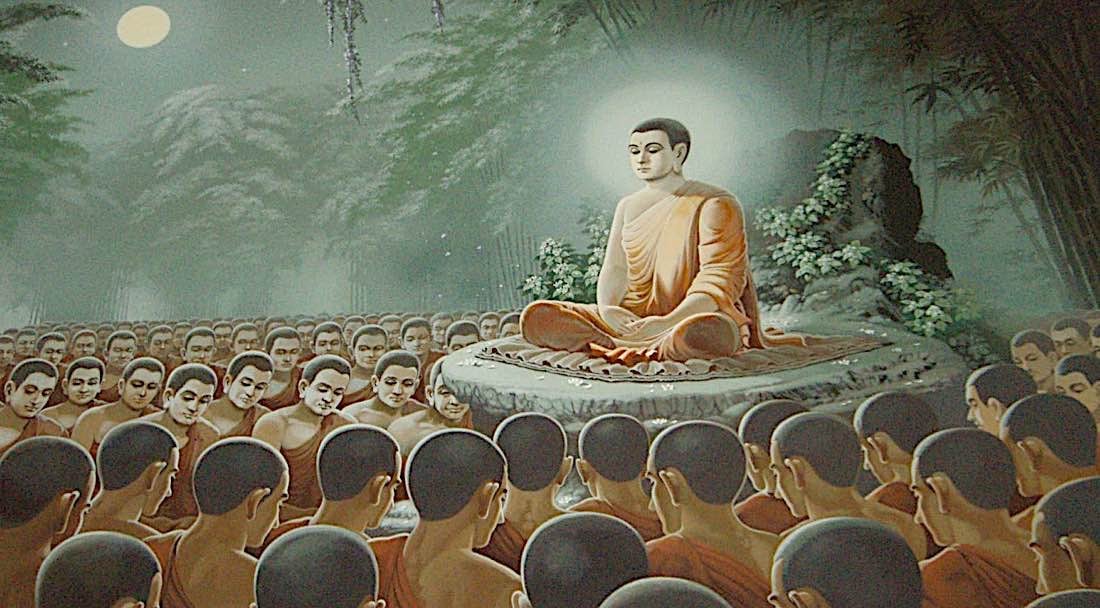
Sutra in Forty-Two Sections
Having attained Buddhahood, the World-honored One thought thus: “To be free from the passions and to be calm, this is the most excellent Way.
He was absorbed in Great Meditation, subdued all evil ones, and in Deer Park caused to revolve the Wheel of Dharma, which was the Fourfold Truth and converted the five Bhikshus, Kaudinya, etc., introducing them to attain Enlightenment.
Again, there were other Bhikshus who implored the Buddha to remove their doubts, which they had concerning his doctrine. The World-honored One illumined all their minds through his authoritative teachings. The Bhikshus, joining their hands and reverentially bowing, followed his august instructions.
…
Clarifying Good and Evil
The Buddha said, “Living beings may perform Ten Good Deeds or Ten Evil Deeds. What are the ten? Three are done with the body, four are done with the mouth, and three are done with the mind. The three done with the body are killing, stealing, and lust. The four done with the mouth are duplicity, harsh speech, lies, and frivolous speech. The three done with the mind are jealousy, hatred, and stupidity. Thus these ten are not in accord with the Way of Sages and are called the Ten Evil Deeds. To put a stop to these evils is to perform the Ten Good Deeds.”
Reducing the Severity of Offenses
The Buddha said, “If a person has many offenses and does not repent of them, but cuts off all thought of repentance, the offenses will engulf him, just as water returning to the sea will gradually become deeper and wider. If a person has offenses and, realizing they are wrong, reforms and does good, the offenses will dissolve by themselves, just as a sick person who begins to perspire will gradually be cured.”
Tolerating Evil-doers and Avoiding Hatred
The Buddha said,
“When an evil person hears about your goodness and intentionally comes to cause trouble, you should restrain yourself and not become angry or blame him. Then the one who has come to do evil will do evil to himself. “
Evil Returns to the Doer
The Buddha said,
“There was a person who, upon hearing that I observe the Way and practice great humane kindness, intentionally came to berate me. I was silent and did not reply. When he finished abusing me, I asked, ‘If you are courteous to people and they do not accept your courtesy, the courtesy returns to you, does it not? ‘
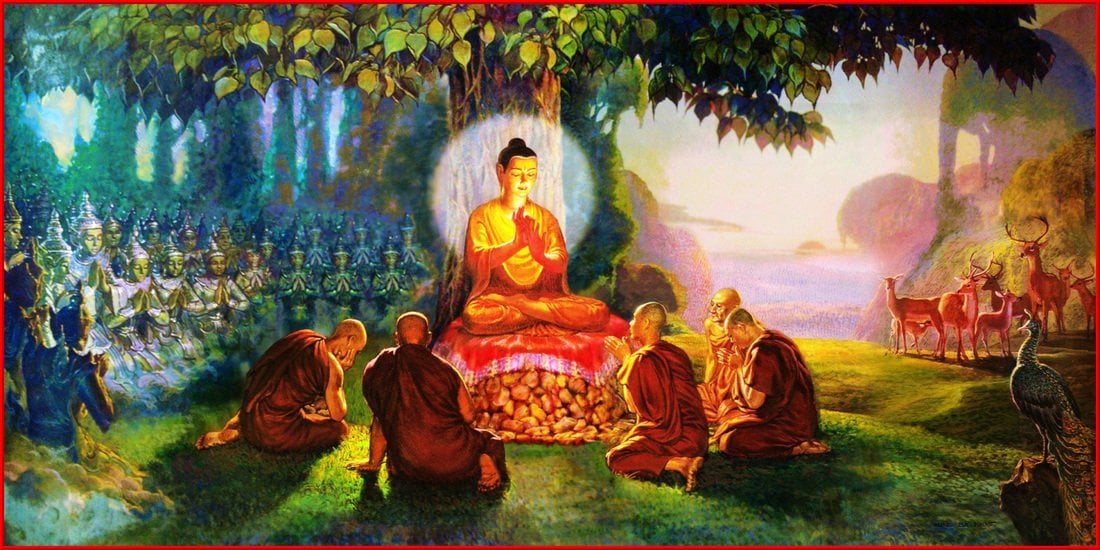
Abusing Others Defiles Oneself
The Buddha said, “An evil person who harms a sage is like one who raises his head and spits at heaven. Instead of reaching heaven, the spittle falls back on him. It is the same with someone who throws dust against the wind. Instead of going somewhere else, the dust returns to defile his own body. The sage can not be harmed. Misdeeds will inevitably destroy the doer. ”
By Returning to the Source, You Find the Way
The Buddha said, “Deep learning and a love of the Way make the Way difficult to attain. When you guard your mind and revere the Way, the Way is truly great!”
Joyful Charity Brings Blessings
The Buddha said,
“When you see someone who is practicing giving, aid him joyfully, and you will obtain vast and great blessings. “
A Shramana asked, is there an end to those blessings? ”
The Buddha said, “Consider the flame of a single torch. Though hundreds and thousands of people come to light their own torches from it so that they can cook their food and ward off darkness, the first torch remains the same. Blessings, too, are like this.”
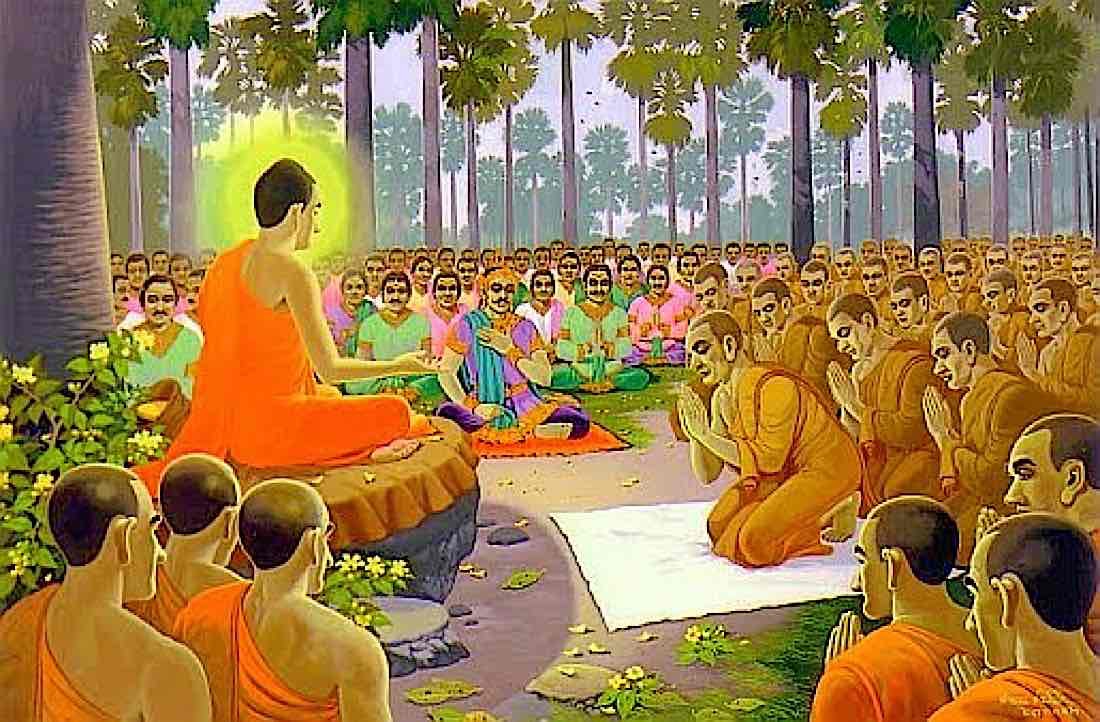
A List of Difficulties and an Exhortation to Cultivate
The Buddha said,
“People encounter twenty different kinds of difficulties: It is difficult to give when one is poor. It is difficult to study the Way when one has wealth and status. It is difficult to abandon life and face the certainty of death. It is difficult to encounter the Buddhist sutras. It is difficult to be born at the time of a Buddha. It is difficult to be patient with lust and desire. It is difficult to see fine things and not seek them. It is difficult to be insulted and not become angry. It is difficult to have power and not abuse it. It is difficult to come in contact with things and have no thought of them. It is difficult to be vastly learned and well-read. It is difficult to get rid of pride. It is difficult not to slight those who have not yet studied. It is difficult to practice equanimity of mind. It is difficult not to gossip. It is difficult to meet a Good and Wise Advisor. It is difficult to see one own nature and study the Way. It is difficult to teach and save people according to their potentials. It is difficult to see a state and not be moved by it. It is difficult to have a good understanding of skill-in-means.”
Questions about the Way and Past Lives
A Shramana asked the Buddha, “What causes and conditions can I know my past lives and understand the ultimate Way? ”
The Buddha said, “Purifying your mind and preserving your resolve, you can understand the ultimate Way. Just as when you polish a mirror, the dust vanishes and brightness remains, so too, if you cut off desire and do not seek, you then can know past lives.”
Asking about Goodness and Greatness
A Shramana asked the Buddha, “What is goodness? What is the foremost greatness?” The Buddha said, practice the Way, and uphold the truth is goodness. To unite your will with the Way is greatness.”
Asking about Strength and Brilliance
A Shramana asked the Buddha, “What is the greatest strength? What is the utmost brilliance?”
The Buddha said,
“Patience under insult is the greatest strength, because people who are patient do not harbor hatred, and they gradually grow more peaceful and strong. Patient people, since they are not evil, will surely gain the respect of others. Then the mind defilements are gone completely, so that it is pure and untainted, that is the utmost brilliance. When there is nothing, from before the formation of the heavens and the earth until now, in any of the ten directions that you do not see, know, or hear; when you have attained omniscience that may be called brilliance.”
When Light Arrives, Darkness Departs
The Buddha said, “Those who see the Way are like someone holding a torch who enters a dark room, dispelling the darkness so that only light remains. When you study the Way and see the truth, ignorance vanishes and light remains forever.”
Thoughts and So Forth Are Basically Empty
The Buddha said,
“Dharma is the mindfulness that is both mindfulness and non-mindfulness. It is the practice that is both practice and non-practice. It is words that are words and non- words, and cultivation that is cultivation and non-cultivation. Those who understand are near to it; those who are confused are far away, indeed. It is not accessible by the path of language. It is not hindered by physical objects. If you are off by a hairsbreadth, you will lose it in an instant. “
Contemplating Both the False and the True
The Buddha said, “Contemplate heaven and earth, and be mindful of their impermanence. Contemplate the world, and be mindful of its impermanence. Contemplate the efficacious, enlightened nature: it is the Bodhi nature. With this awareness, one quickly attains the Way.”
Realize that the Self Is Truly Empty
The Buddha said,
“You should be mindful of the four elements within the body. Though each has a name, none of them is the self. Since they are not the self, they are like an illusion.”
Fame Destroys Life Roots
The Buddha said, “There are people who follow emotion and desire and seek to be famous. By the time their reputation is established, they are already dead. Those who are greedy for worldly fame and do not study the Way simply waste their effort and wear themselves out. By way of analogy, although burning incense gives off fragrance, when it has burned down, the remaining embers bring the danger of a fire that can burn one up.”
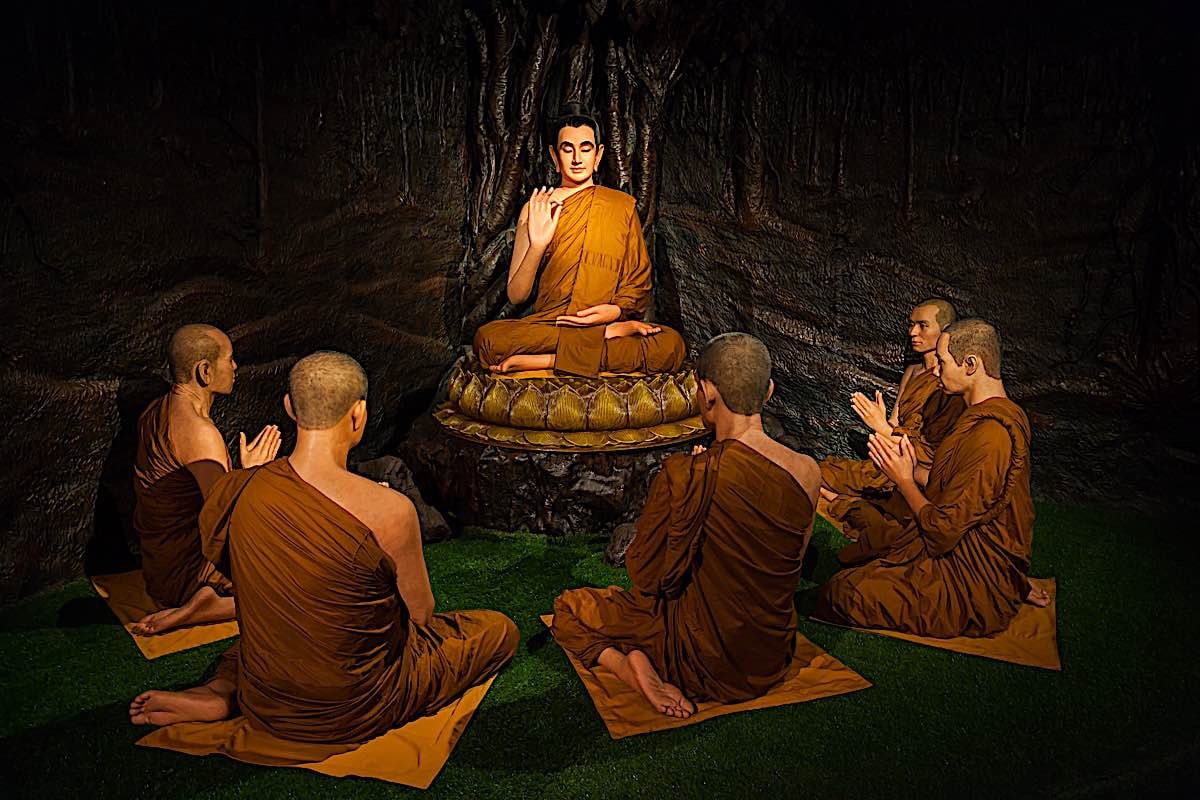
One Attains the Way after Letting Go of Attachments
The Buddha said, “Person who follows the Way is like a floating piece of wood that courses along with the current. If it does not touch either shore; if people do not pluck it out; if ghosts and spirits do not intercept it; if it is not trapped in whirlpools; and if it does not rot, I guarantee that the piece of wood will reach the sea. If students of the Way are not deluded by emotion and desire, and if they are not caught up in the many crooked views, but are vigorous in their cultivation of the unconditioned, I guarantee that they will certainly attain the Way.”
Don’t Indulge the Wild Mind
The Buddha said,
“Be careful not to believe your own mind; your mind is not to be believed…”
Stay Far Away from the Fire of Desire
The Buddha said, “People who cultivate the Way are like dry grass: it is essential to keep it away from an oncoming fire. People who cultivate the Way look upon desire as something they must stay far away from.”
Wisdom and Clarity Defeat the Demons
The Buddha said, “People who cultivate the Way are like a soldier who goes into battle alone against ten thousand enemies. He dons his armor and goes out the gate. He may prove to be a coward; he may get halfway to the battlefield and retreat; he may be killed in combat; or he may return victorious. Shramanas who study the Way must make their minds resolute and be vigorous, courageous, and valiant. Not fearing what lies ahead, they should defeat the hordes of demons and obtain the fruition of the Way.”
By Staying in the Middle, One Attains the Way
One evening a Shramana was reciting the Sutra of the Teaching Bequeathed by the Buddha Kashyapa. The sound of his voice was mournful as he reflected remorsefully on his wish to retreat in cultivation. The Buddha asked him, “In the past when you were a householder, what did you do? “He replied, “I was fond of playing the lute.” The Buddha said, “What happened when the strings were slack?” He replied, “They didn’t sound. ” What happened when they were too tight?” He replied, “The sounds were cut short.” What happened when they were tuned just right between slack and tight? ” He replied, “The sounds carried.” The Buddha said, “It is the same with a
Shramana who studies the Way. If his mind is harmonious, he can attain the Way. If he is impetuous about the Way, his impetuousness will tire out his body; and if his body is tired, his mind will become afflicted. If his mind becomes afflicted, then he will retreat from his practice. If he retreats from his practice, his offenses will certainly increase. You need only be pure, peaceful, and happy, and you will not lose the Way.”
When One Is Purified of Defilements, the Brilliance Remains
The Buddha said, “People smelt metal by burning the dross out of it in order to make high quality implements. It is the same with people who study the Way: first they must get rid of the defilements in their minds; then their practice becomes pure.”
Staying Mindful of Moral Precepts Brings Us Close to the Way
The Buddha said, “My disciples may be several thousand miles away from me, but if they remember my moral precepts, they will certainly attain the fruition of the Way. If those who are by my side do not follow my moral precepts, they may see me constantly, but in the end they will not attain the Way.”
Birth Leads to Death
The Buddha asked a Shramana, “How long is the human life span?” He replied, few days. ” The Buddha said, “You have not yet understood the Way. ”
He asked another Shramana, “How long is the human life span?” The reply was, he space of a meal.” The Buddha said, “You have not yet understood the Way. “
He asked another Shramana, “How long is the human life span?” He replied, he length of a single breath.” The Buddha said, “Excellent. You have understood the Way.”
The Way Is Practiced in the Mind
The Buddha said, “Shramana who practices the Way should not be like an ox turning a millstone. Such a one walks the Way with his body, but his mind is not on the Way. If the mind is concentrated on the Way, what further need is there to practice?”
Understanding that the World Is Illusory
The Buddha said,
“Look upon royalty and high positions as upon the dust that floats through a crack. I look upon treasures of gold and jade as upon broken tiles. I look upon fine silk clothing as upon cheap cotton. I look upon a great thousand- world universe as upon a small nut kernel. I look upon the waters of the Anavatapta Lake as upon oil used to anoint the feet.”
1 thought on “Sutra in Forty-Two Sections — excerpts of timeless wisdom and practice advice from the World Honoured One”
Leave a Comment
More articles by this author
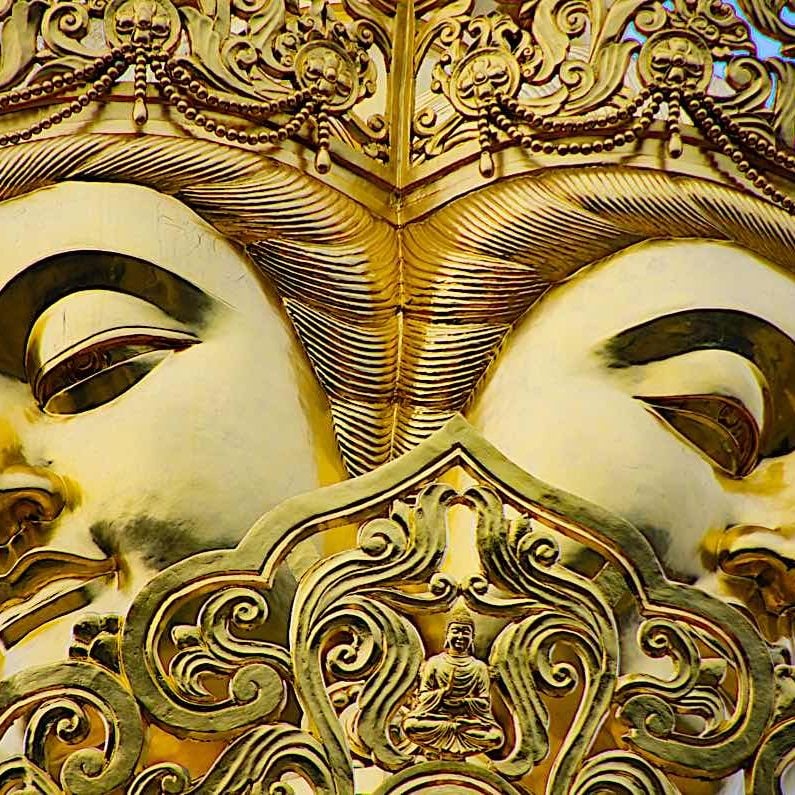
Samantabhadra’s The King of Prayers is the ultimate Buddhist practice how-to and itself a complete practice
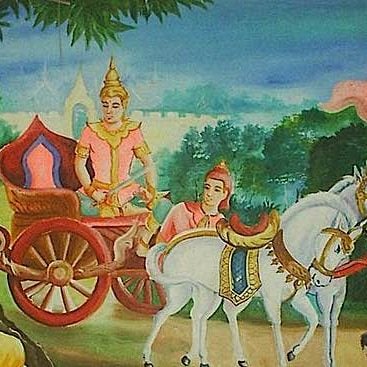
The Five Strengths and Powers or pañcabalā in Buddhism — the qualities conducive to Enlightenment: faith, energy, mindfulness, concentration and wisdom

Tara’s Great Dharani Supreme of all Mantras –with Music version– and the Sutra of Tara Who Protects from the Eight Fears: in Tara’s Own Words
Search
Latest Features
Please support the "Spread the Dharma" mission as one of our heroic Dharma Supporting Members, or with a one-time donation.
Please Help Support the “Spread the Dharma” Mission!

Be a part of the noble mission as a supporting member or a patron, or a volunteer contributor of content.
The power of Dharma to help sentient beings, in part, lies in ensuring access to Buddha’s precious Dharma — the mission of Buddha Weekly. We can’t do it without you!
A non-profit association since 2007, Buddha Weekly published many feature articles, videos, and, podcasts. Please consider supporting the mission to preserve and “Spread the Dharma." Your support as either a patron or a supporting member helps defray the high costs of producing quality Dharma content. Thank you! Learn more here, or become one of our super karma heroes on Patreon.
Lee Kane
Author | Buddha Weekly
Lee Kane is the editor of Buddha Weekly, since 2007. His main focuses as a writer are mindfulness techniques, meditation, Dharma and Sutra commentaries, Buddhist practices, international perspectives and traditions, Vajrayana, Mahayana, Zen. He also covers various events.
Lee also contributes as a writer to various other online magazines and blogs.
















Thanks for these priceless gems.